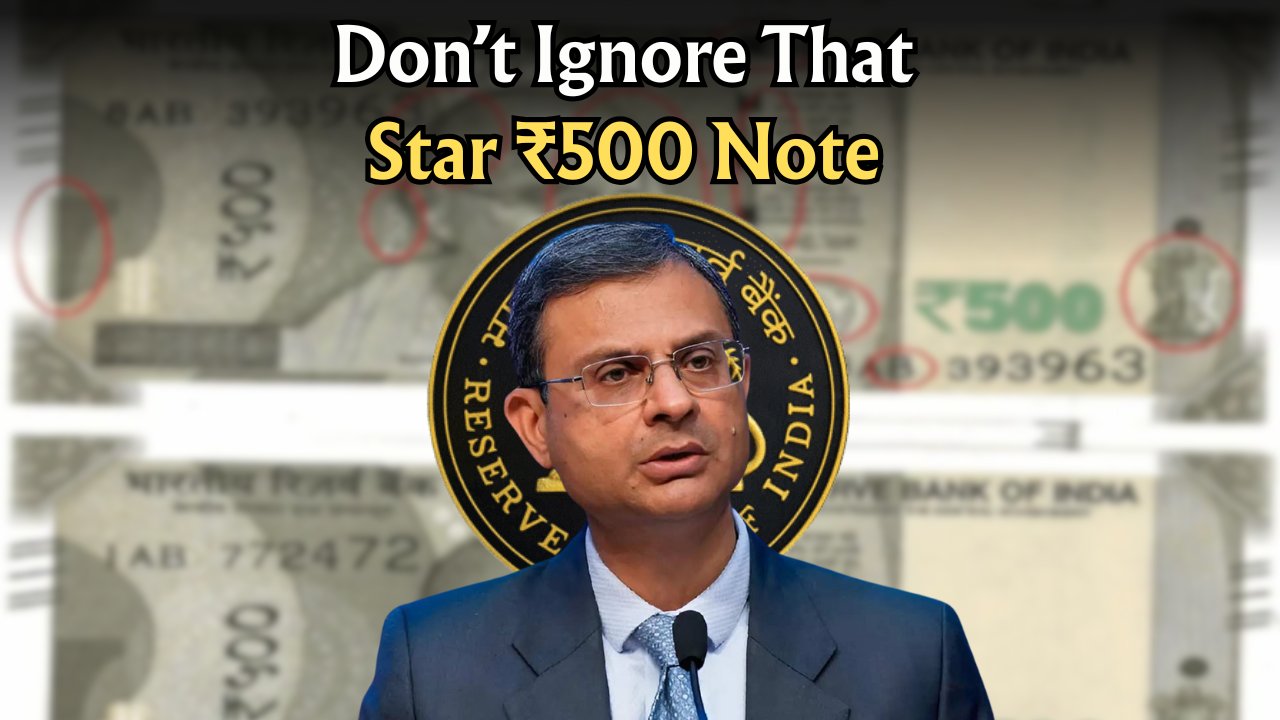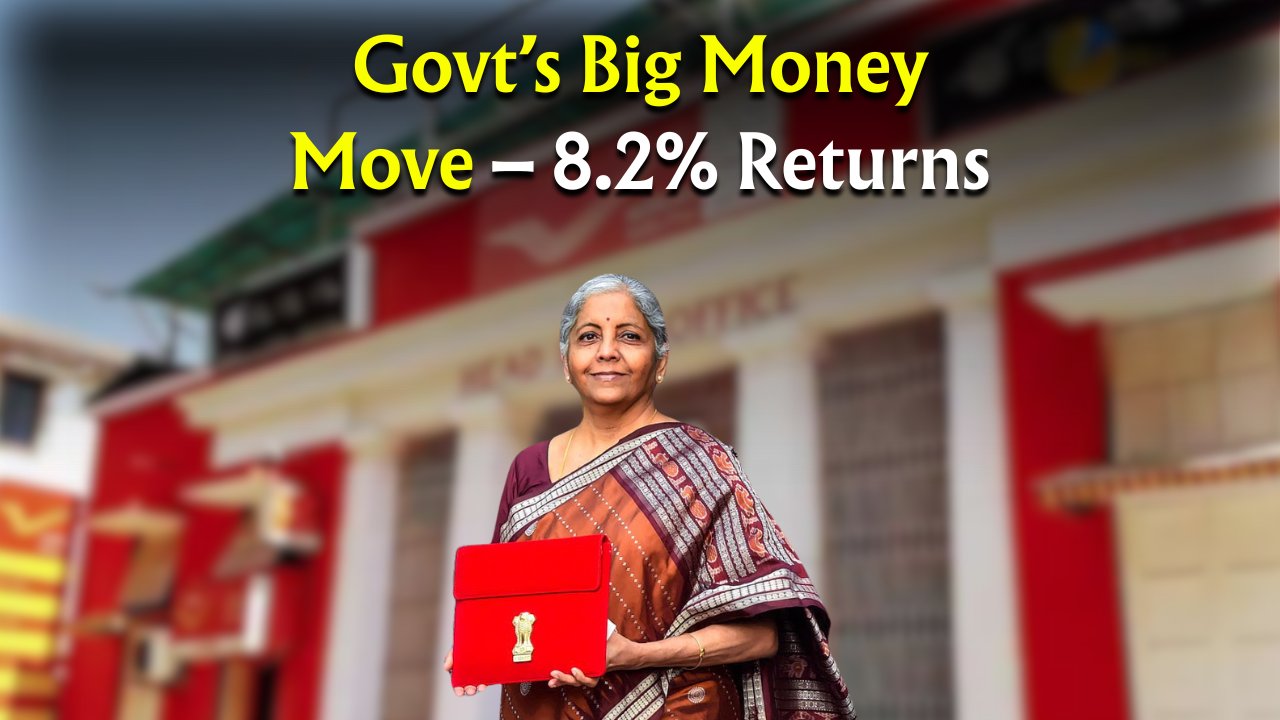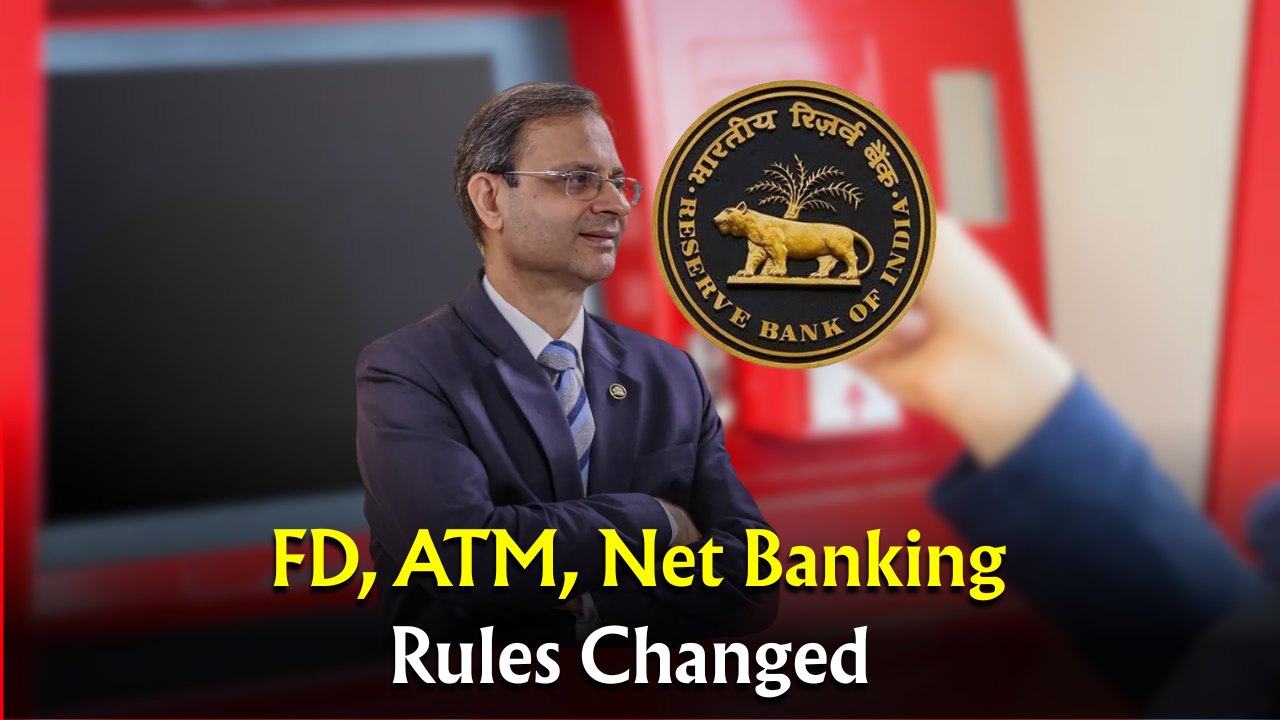Star ₹500 Notes : In recent weeks, confusion has spread among the public regarding ₹500 currency notes that have a tiny * (star) symbol printed near the number panel. Rumors and misinformation flooded social media, leading to panic and speculation about the authenticity and usability of these ‘star notes.’ To clear the air, the Reserve Bank of India (RBI) has officially addressed the issue and clarified the status of star-marked ₹500 notes. But what does it mean for the common man? Should you keep these notes or exchange them at a bank? Here’s a detailed explanation.
What Are Star ₹500 Notes?
The ‘star’ mark on a ₹500 note indicates that it is a replacement note issued by the RBI. These notes are perfectly legal and are part of RBI’s standard currency issuance system.
Key Facts About Star ₹500 Notes:
- The star mark appears in the number panel, usually between the prefix and the serial number.
- These notes are printed to replace defective ones found during the production process.
- The design, security features, and validity remain the same as regular ₹500 notes.
- The star symbol helps identify that the note was reissued but does not affect its legal status.
 Private Company Salary Hike 2025 – After Latest Salary Revision, Employees to Take Home More Pay
Private Company Salary Hike 2025 – After Latest Salary Revision, Employees to Take Home More Pay
RBI’s Official Clarification on Star Notes
Amid the confusion, RBI released an official statement to settle the matter:
- RBI has reaffirmed that star-marked notes are legal tender.
- These notes are issued under the “Clean Note Policy.”
- There is no need to exchange or avoid these notes.
- Banks and ATMs are authorized to issue and accept star notes as usual.
The Clean Note Policy and Replacement System
RBI’s Clean Note Policy ensures that the public gets clean, usable, and counterfeit-free notes. Under this initiative, notes with printing defects are removed during production and replaced with “star” notes.
Why the Replacement System Exists:
- To maintain note quality in circulation.
- To minimize wastage during production.
- To avoid recalling entire bundles due to a few defective notes.
Here’s a breakdown of how the system works:
| Note Type | With Star (*) | Without Star | Legal Tender | Reason for Issuance | Needs Exchange? | Common Denominations |
|---|---|---|---|---|---|---|
| ₹500 | Yes | Yes | Yes | Replaces defective printed note | No | Yes |
| ₹200 | Yes | Yes | Yes | Issued under Clean Note Policy | No | Yes |
| ₹100 | Yes | Yes | Yes | Reissued after detection issues | No | Yes |
| ₹50 | Yes | Yes | Yes | Part of standard reissuance | No | Yes |
| ₹10 | Yes | Yes | Yes | Often reprinted due to wear | No | Yes |
| ₹20 | Yes | Yes | Yes | Valid in all transactions | No | Yes |
| ₹2000 (Old stock) | Rarely | Yes | Yes | Not usually star-marked | No | Limited circulation |
| ₹1 | No | Yes | Yes | Not included in star system | No | Limited usage |
Should You Accept or Exchange a Star ₹500 Note?
Absolutely accept it. There is no need to worry or exchange a star-marked ₹500 note. RBI has made it abundantly clear that these notes are 100% valid for all transactions.
Why You Shouldn’t Reject Star Notes:
- Replacing valid currency notes causes unnecessary panic.
- These notes are indistinguishable in quality from regular ones.
- Refusal of legal tender is punishable under Indian law.
- Banks are instructed not to reject or question star notes.
Do Star ₹500 Notes Have Any Extra Value?
There is a common myth that star-marked currency holds extra monetary or collectible value. In most cases, this is not true.
Facts vs Myths:
- Myth: Star notes are rare and more valuable.
- Fact: They are part of standard replacement stock.
- Myth: Only fake notes have stars.
- Fact: RBI itself prints and circulates these notes.
- Myth: Shops can legally reject star notes.
- Fact: Denial of legal tender is illegal under RBI guidelines.
Comparison Table: Star Note vs Regular Note
| Feature | Star ₹500 Note | Regular ₹500 Note |
|---|---|---|
| Legal Tender | Yes | Yes |
| Value | ₹500 | ₹500 |
| RBI Issued | Yes | Yes |
| Extra Value for Collectors | No | No |
| Circulation System | Replacement System | Primary Circulation |
| Design/Security Features | Same | Same |
| Acceptable at ATM/Bank | Yes | Yes |
What Should You Do If Someone Rejects a Star ₹500 Note?
If a retailer or vendor refuses to accept a star note, you can politely inform them about its legitimacy. If the issue persists, you can:
- Report the matter to the nearest bank branch.
- Lodge a complaint with the RBI consumer grievance portal.
- Contact RBI’s regional office in your area for clarification.
Where to Verify Note Authenticity
In case you’re unsure about whether a currency note is real or fake, use the following methods:
- RBI’s MANI App (Mobile Aided Note Identifier).
- Cross-check watermark, micro-lettering, security thread, and color shift ink.
- Use UV lights at banks or currency verification machines.
Important RBI Guidelines on Currency Notes
| Guideline | Applicability | RBI Policy | Notes |
|---|---|---|---|
| Star-marked notes are legal tender | All denominations | Yes – Clean Note Policy | No need to exchange |
| Acceptance of any legal currency | Banks, ATMs, Shops | Mandatory | Refusal is a violation |
| Replacement of defective currency | Applicable | Through RBI-authorized banks | Usually replaced with star notes |
| Fake note awareness | Public | RBI publishes awareness guides | Use RBI website or official app |
| Damaged or soiled note policy | Public & Banks | Banks must accept such notes | Depending on the damage, exchange is possible |
The star ₹500 notes are a regular and valid part of India’s currency system, printed and circulated by the Reserve Bank of India under its Clean Note Policy. There is no cause for alarm or concern regarding these notes. Citizens should freely use them in all transactions without hesitation. It’s important to stay informed through official RBI guidelines and avoid getting misled by rumors on social media.
This article is for informational purposes only and is based on official RBI circulars and press releases. Always refer to the RBI website or contact your local bank branch for any note-related clarifications.
How long can I keep the old ₹500 notes issued by the RBI?
The old ₹500 notes issued by the RBI are legal tender, but it's advisable to exchange them at banks or post offices for the new notes.








